Teach Students to Ask Their Own Questions
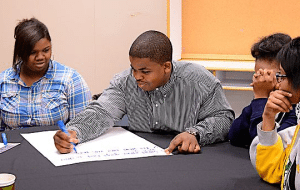
The skill of question asking is far too rarely deliberately taught in school. We have worked with and learned from educators to develop a teaching strategy that provides a simple, yet powerful way to get students asking their own questions and building off their peers’ questions.
Just when you think you know all that you need to know, you ask another question and discover how much more there is to learn.
– Sixth grade student, J.L. Stanford Middle School, Palo Alto, CA
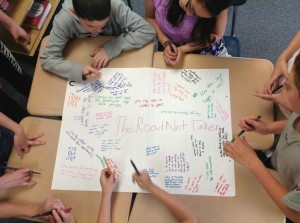 The foundational skill of Question Formulation can be easily integrated into your current curriculum and have immediate impact in your class, from kindergarten to higher learning.
The foundational skill of Question Formulation can be easily integrated into your current curriculum and have immediate impact in your class, from kindergarten to higher learning.
As a member of the network, you will have access to many free resources including:
- Experiencing the QFT describes the process and walks you through the Question Formulation Technique.
- Introducing the QFT into your Classroom Practice helps you prepare for introducing your students to the Question Formulation Technique.
- Introduction to QFocus Design provides some tips on creating effective prompts.
Examples of application
Teacher: Jennifer Shaffer

She showed her students the QFocus – a picture of an alligator with baby alligators on its head. The room “erupted” with their questions and she recorded their questions and allowed them to whisper their final question to their partner. The class then used their questions as they were reading a non-fiction text about alligators. Jay Corrigan, one of the observers noted, “The students were totally engaged and they all asked very focused questions. They were successful to the point that the adults in the room who were watching were shocked.”
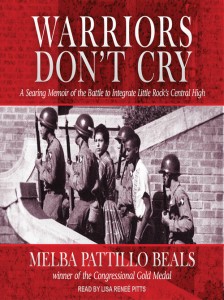 School: McComb School District, McComb, MS
School: McComb School District, McComb, MSTeacher: Laura MercierMs. Mercier used the QFocus: “By volunteering, Melba took the first step to desegregate an all-white school.” She shared the following reflection: “I have gotten them comfortable with commenting about surprising moments and connections they make with the text, but I have seen a weakness in their question-asking skills. I was very excited to learn about QFT and what it could do for my students… They simply were not aware that they were capable of asking meaningful questions about a text, or a statement because they are used to the teachers asking the questions. The students all considered QFT to be a positive experience in their reflection and hoped to be able to do it again in the future.”
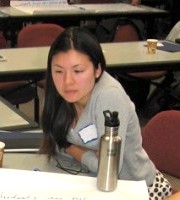 School: Urban Science Academy, Boston, MA
School: Urban Science Academy, Boston, MATeacher: Ling-Se Peet“The QFT has powerful implications for bridging the achievement gap for minority male students, a group that has traditionally been ignored by school districts. I think that they showed these improvements because they felt empowered by the QFT. It was really inspiring for me to see these changes in my summer school students because I always ask myself how I can make my classroom a more equitable place, and I believe that using the QFT can help me do that.”
Teacher: Jay Corrigan
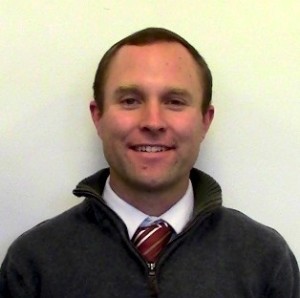
“The explosion of noise that happened as soon as the QFocus was on the board was the first indication that I had wildly misjudged what these students were capable of. As I walked around the room observing these small groups of students asking questions (and distributing more index cards because it quickly became apparent that 20 would not be enough) I was struck by the depth of their thinking. These students did not have the content knowledge they needed to understand exactly what was going on in the QFocus, but I felt like the reasoning shown in many of the questions they were asking was breathtakingly complex.”Read Jay’s blog post to learn more.
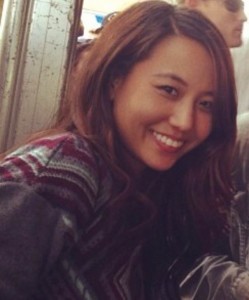 School: PS191, Museum Magnet School, New York, NY
School: PS191, Museum Magnet School, New York, NYTeacher: Esther Lee“I was astonished. My students were being civil to one another, following the procedure, asking questions, making connections, and being engaged! Just within minutes, my students had asked all the deep and thought-provoking questions that the unit would cover… I could only hope that other special educators out there who are frustrated by the high demands and lack of resources can give QFT a try – it will forever change your teaching, and the way your students learn.”Read Esther’s blog post to learn more.
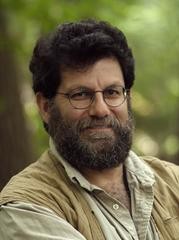 School: Brandeis University, Waltham, MA
School: Brandeis University, Waltham, MAProfessor: Dan Perlman
Associate Provost of Innovation in Education and Professor of BiologyDan used the title of a key text, The Distribution and Abundance of Animals, and adapted it to create the QFocus: The Distribution and Abundance of Organisms. Students commented on how their questions became significantly deeper each time they engaged with the QFT.” [The Question Formulation Technique] forces us to uncritically welcome each other’s questions and to encourage our peers to take ownership of the material. The QFT creates a space for us to admit what we don’t know, and value assessing our confusion, rather than hide it.”
The professional development on the Question Formulation Technique gave teachers the spark they needed; their enthusiasm is spreading like wildfire! They (the teachers) are really excited about the critical thinking and student engagement that question formulation engendered.
– Administrators, McComb School District
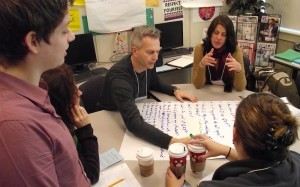 If you are interested in a keynote presentation, district-wide professional development, or statewide professional development please use the contact form to submit a request. We have limited capacity to provide on-site professional development for individual schools.
If you are interested in a keynote presentation, district-wide professional development, or statewide professional development please use the contact form to submit a request. We have limited capacity to provide on-site professional development for individual schools.
Self-Directed
You can learn the strategy using materials available on this website. You can also read Make Just One Change to learn the strategy and read about case studies of the process in action in classrooms. Educators from across the world are implementing the strategy in classrooms and within their organizations after using the book and free resources available on this website.
Examples of application
Theresa Schrader – 4th grade ELA teacher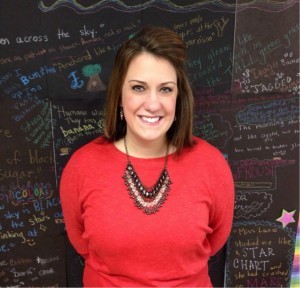 Theresa Schrader, a 4th grade ELA teacher in Bethel, Connecticut, and Kara DiBartolo, her coach, read Make Just One Change together and used free resources RQI offers as a part of their school district’s coaching program. With the support of her coach, she walked her students through the process using the QFocus “Revolutionaries have changed the world.” Her students were so engaged and working so well together, she wanted to “scream ‘Hallelujah”, but instead, “she grabbed her camera and took pictures of the students in action”.
Theresa Schrader, a 4th grade ELA teacher in Bethel, Connecticut, and Kara DiBartolo, her coach, read Make Just One Change together and used free resources RQI offers as a part of their school district’s coaching program. With the support of her coach, she walked her students through the process using the QFocus “Revolutionaries have changed the world.” Her students were so engaged and working so well together, she wanted to “scream ‘Hallelujah”, but instead, “she grabbed her camera and took pictures of the students in action”.
Attend a Seminar
Attend a Regional Summer Seminar – click here to find one near you.
On-Site
Our on-site professional development is “highly engaging and informative” and ranges from 1.5 hrs to 6 hours. Most recently we have provided professional development sessions to schools, districts, and organizations from across the country, including:
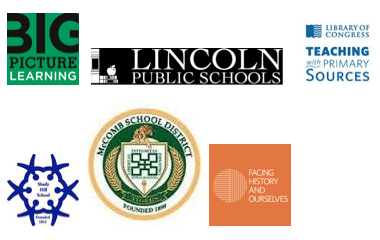
Partnership
We also offer a unique opportunity for school districts or organizations to partner with us to host a regional seminar. Please contact us to learn more.
Examples of application
Maine Township school district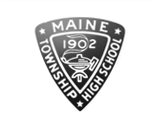 The Maine Township school district partnered with RQI to offer a one-day seminar to educators in their region (beyond their school district). Following that seminar, many educators opted to focus their goals on student creation of questions, the development of higher-level questions, and leading class discussions where students’ voices are heard. They identified the Question Formulation Technique as the best strategy to help them achieve these goals.
The Maine Township school district partnered with RQI to offer a one-day seminar to educators in their region (beyond their school district). Following that seminar, many educators opted to focus their goals on student creation of questions, the development of higher-level questions, and leading class discussions where students’ voices are heard. They identified the Question Formulation Technique as the best strategy to help them achieve these goals.I now recognize the need to engage my graduate teachers in the process of questioning and helping them teach their students to think about asking questions.
I teach teachers. We all need to engage students more. This models good teaching.
– Professors, The Lesley University Graduate School of Education
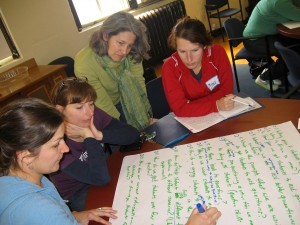 Professors of Teacher Education see the value in the Right Question strategy as a student engagement and critical thinking tool they will use in their own courses as well as a strategy for their student teachers to use in their future classrooms.
Professors of Teacher Education see the value in the Right Question strategy as a student engagement and critical thinking tool they will use in their own courses as well as a strategy for their student teachers to use in their future classrooms.
Professors of Teacher Education also see great value in the Right Question strategy as a “pedagogical revolution” that builds lasting inquiry and critical skills.
[/wptabcontent] [wptabtitle]Why Questions Matter[/wptabtitle] [wptabcontent]Excellent strategy for developing critical thinking skills. All of us need to practice asking questions and learning how to ask questions. Our educational system focuses on the right answer and not on building curiosity and skills in inquiry.
Stopping to think about the value of students asking questions is very valuable to educators and those they teach.
– Professors, University of Maine at Farmington and The Lesley University Graduate School of Education
This process explicitly validates all students’ intellectual abilities.
– High School History Teacher, New York
The reasons behind their questions often bowl me over with their sincerity, the fact that [they] really want to know the answers because it’s important to them, or they feel it would be important for others to know.
– 4th Grade Teacher, Chicago
The ability to produce questions, improve questions and prioritize questions may be one of the most important—yet too often overlooked—skills that a student can acquire in their formal education. Strong critical thinking is often grounded in the questions we ask. By deliberately teaching questioning skills, we will be facilitating a process that will help students develop a mental muscle necessary for deeper learning, creativity and innovation, analysis, and problem solving.
Many voices are weighing in on the Importance of Developing Students’ Questioning Skills:
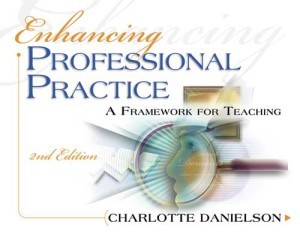 Danielson’s Framework 3B encourages educators to teach their students to ask their own questions. In fact, “distinguished” educators are those who formulate high quality questions and get their students to formulate many of their own questions. Additionally, the framework encourages discussion based classrooms where students can guide the discussion.
Danielson’s Framework 3B encourages educators to teach their students to ask their own questions. In fact, “distinguished” educators are those who formulate high quality questions and get their students to formulate many of their own questions. Additionally, the framework encourages discussion based classrooms where students can guide the discussion.
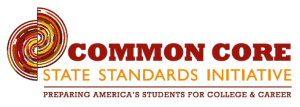 Common Core standards push students to develop a deep, conceptual understanding of content. Teaching students to ask their own questions helps them become self-directed learners who are deeply engaged in content.
Common Core standards push students to develop a deep, conceptual understanding of content. Teaching students to ask their own questions helps them become self-directed learners who are deeply engaged in content.
Also, generating and using questions are skills addressed for multiple grade levels within the literacy and science standards.
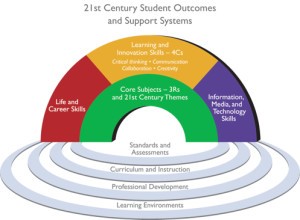 21st Century Skills: Within the “Learning and Innovation Skills” domain of the framework, students are expected to solve problems by finding solutions through innovative means. The domain also states that in order to practice critical thinking and problem-solving skills, students must “identify and ask significant questions that clarify various points of view and lead to better solutions.”
21st Century Skills: Within the “Learning and Innovation Skills” domain of the framework, students are expected to solve problems by finding solutions through innovative means. The domain also states that in order to practice critical thinking and problem-solving skills, students must “identify and ask significant questions that clarify various points of view and lead to better solutions.”
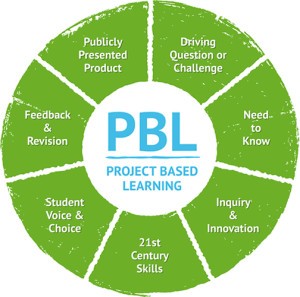 Project Based Learning: Student learning and investigation are organized around “driving questions.” Rigorous projects are carefully planned, managed, and assessed by students to help them learn key academic content and practice 21st century skills. The process creates an environment for the asking of questions, challenging and evaluating students’ decisions, and communicating and defending ideas.
Project Based Learning: Student learning and investigation are organized around “driving questions.” Rigorous projects are carefully planned, managed, and assessed by students to help them learn key academic content and practice 21st century skills. The process creates an environment for the asking of questions, challenging and evaluating students’ decisions, and communicating and defending ideas.
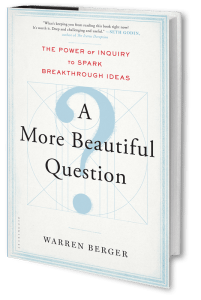 A More Beautiful Question by Warren Berger
A More Beautiful Question by Warren Berger
“Berger’s surprising findings reveal that even though children start out asking hundreds of questions a day, questioning “falls off a cliff” as kids enter school. In an education and business culture devised to reward rote answers over challenging inquiry, questioning isn’t encouraged—and, in fact, is sometimes barely tolerated. And yet, as Berger shows, the most creative, successful people tend to be expert questioners.”
 Are We Asking the Right Questions. By Leon Neyfakh in the Boston Globe Ideas Section
Are We Asking the Right Questions. By Leon Neyfakh in the Boston Globe Ideas Section
“….a question is more than the simple thing we might think it is—that, in fact, it’s a unique instrument that we can get better at using if we try. Wielded with purpose and care, a question can become a sophisticated and potent tool to expand minds, inspire new ideas, and give us surprising power at moments when we might not believe we have any.”